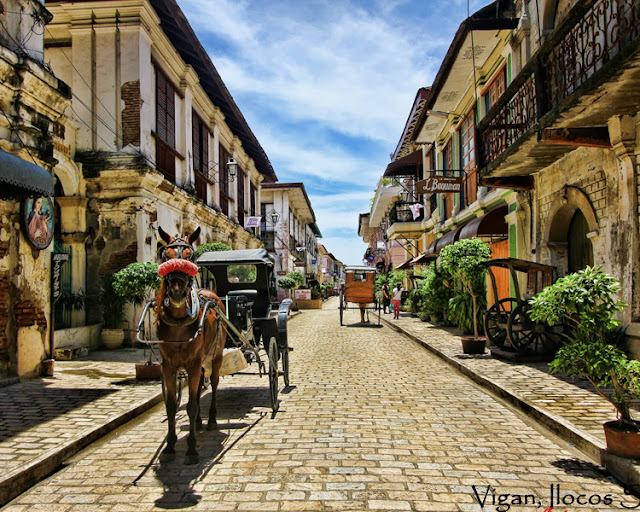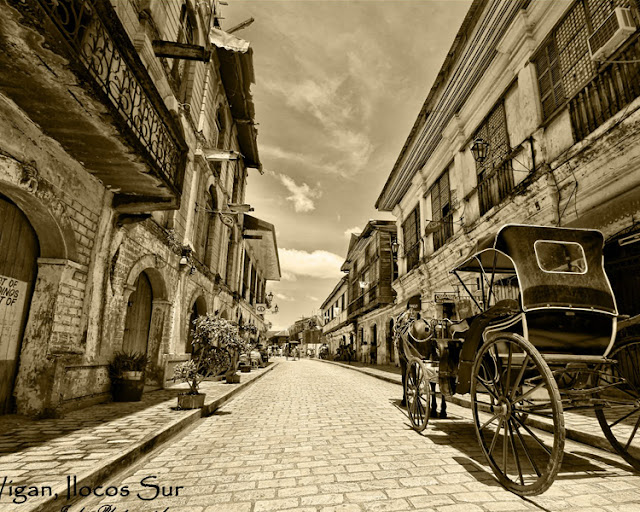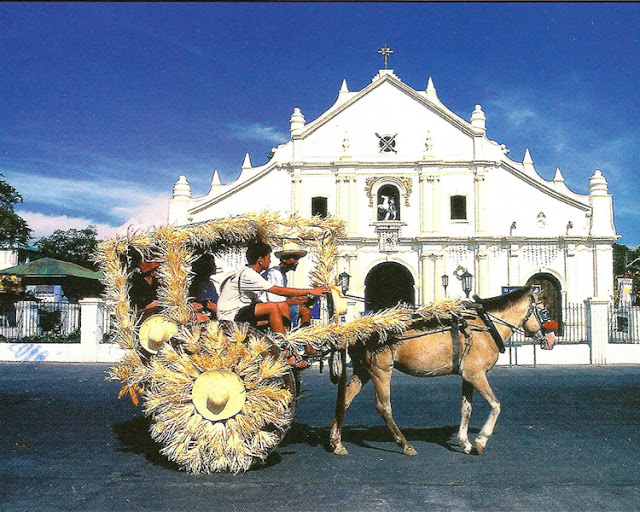 |
| The City of Vigan is a 5th class city in the province of Ilocos Sur, Philippines. |
 |
| It is a World Heritage Site in that it is one of the few Hispanic towns left in the Philippines |
 |
| At the time of Spanish colonisation, the Chinese settlers, whose language was Southern Fujianese referred to the area as "Bee Gan" which means "Beautiful Shore." |
 |
| Vigan's Chinese heritage is still evident from the numerous elite Chinese creole families who come from the area, many of whom adopted Hispanic family names. |
 |
| Established in the 16th century, Vigan is the best-preserved example of a planned Spanish colonial town in Asia. |
 |
| The architecture is truly reflective of its roots in both materials and design, in its fusion of Asian building design and construction with European colonial architecture and planning. |
 |
| The town is located in the delta of the Abra River, off the coastal plain of the China Sea, close to the north-east tip of the island of Luzon. |
 |
| The present-day municipality divided into nine urban districts and thirty rural villages. |
 |
| The building materials used in Vigan are terracotta, wood, shells, stone and lime, all obtained from the surrounding area. |
 |
| Such structures are no longer to be found in Vigan, but their influence is discernible in the much larger bahay na bato (stone house). |
 |
| The exterior walls of the upper storey are enclosed by window panels of kapis shells framed in wood which can be slid back for better ventilation. |
 |
| There is a helpful and friendly provincial tourist information office south west of Plaza Burgos (next to Cafe Leona) that can dispense information on Vigan and the rest of Ilocos Sur. |









No comments: